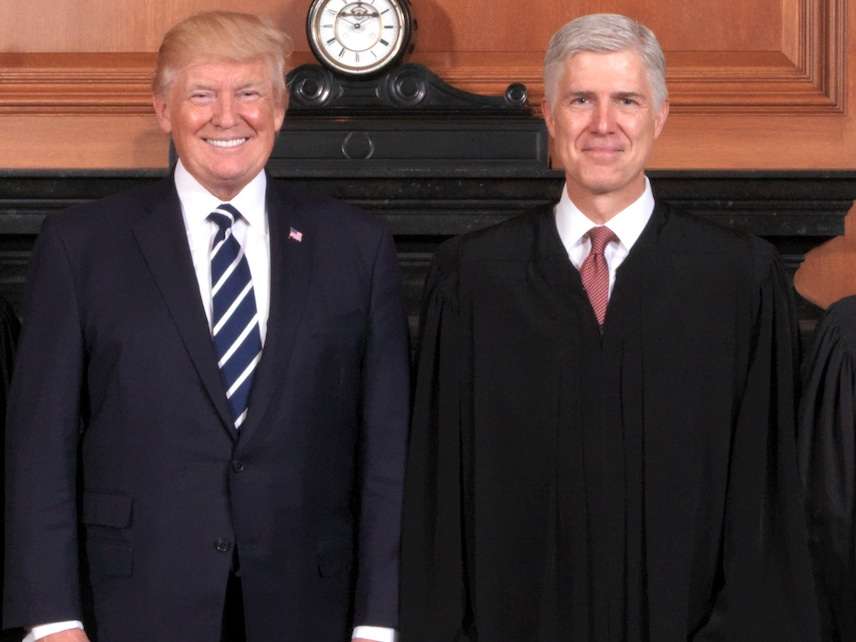Mitch McConnell Thinks His Greatest Achievement Is the Judges His Senate Confirmed
The Senate confirmed a record number of federal appellate court nominees in 2017.

Senate Majority Leader Mitch McConnell (R-Ky.) recently told Bloomberg Politics what he considered the greatest accomplishment of his political career. "For me personally," McConnell said, "it would be Neil Gorsuch and the changes we're making in the circuit courts."
McConnell has certainly been busy on that front. In 2017 the Republican-controlled Senate approved one Supreme Court nominee and 12 appellate court nominees. The latter figure set a new record for appellate court confirmations in the first year of a presidency. And last week the total rose to 13 with the confirmation of David Stras to the U.S. Court of Appeals for the Eighth Circuit.
Gorsuch's appointment to the Supreme Court has understandably received the most attention of the lot. That's due in no small part to the fact that the vacancy Gorsuch filled first arose during the presidency of Barack Obama, who tried to fill it with D.C. Circuit Judge Merrick Garland. But McConnell thwarted Obama, using procedural tactics in the Senate to keep the seat open through the 2016 election. That gave Trump the opportunity.
Supreme Court nominations are important. But the importance of federal appellate court nominations should not be underestimated. Keep in mind that the Supreme Court decides only 75 cases or so each term. The federal appellate courts, by contrast, decide tens of thousands of cases, and many of those rulings are never reviewed by SCOTUS. The federal appellate bench is often the court of last resort.
What do we know about Trump's 13 appellate court appointments? They can all be described as "conservative," and they typically profess themselves to be proponents of constitutional originalism. But on significant questions of constitutional law, some of them strongly disagree with each other. What is more, some of them strongly disagree with the stated positions of the Trump administration. For instance, Attorney General Jeff Sessions is a big proponent of civil asset forfeiture. Recently confirmed 5th Circuit Judge Don Willett, by contrast, has suggested that civil asset forfeiture is unconstitutional.
There are two interrelated stories to follow here. One is that McConnell and the Trump administration are working overtime to get a record number of Republican-nominated judges confirmed to the federal bench. The other, more interesting story is that these new judges come from various parts of the broader conservative legal movement, including its libertarian wing. They do not always march in intellectual lockstep with each other, or with the White House.


Show Comments (18)